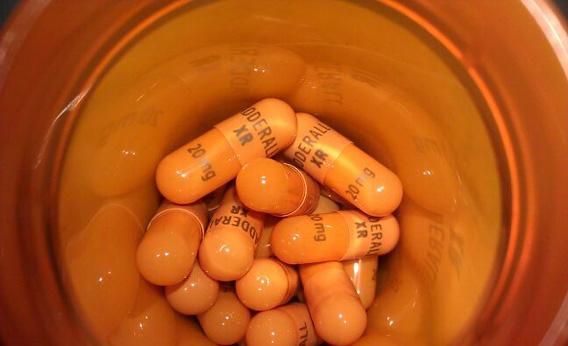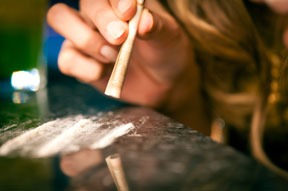Signs and Symptoms of Meth Addiction
In its purest of forms, crystal meth may be one of the most addictive substances on earth, over and above crack or cocaine, because of its high intensities and long durations of action. However, the arrays of chemicals that are used in some productions of meth are often poisonous materials that cause serious health hazards, plaguing users, their families, and communities everywhere.
Meth
Meth (methamphetamine), is a central nervous system (CNS) stimulant that comes in low dose pill forms, powder, or crystals. The pills are rarely prescribed for treatments of narcolepsy and obesity, but, the powder and crystal forms are abused regularly by snorting, smoking, or injecting. Meth is a cheap alternative to crack cocaine producing similar, but, often more intense effects that last for hours.
As a neurotoxin, meth destroys nerve cells and can lead to serious mental health and neurological disorders or persistent psychiatric symptom that can last indefinitely. Physical deterioration can be extremely harmful causing sores and lesions, rotting teeth and gums, and impairments to the brain, heart, kidneys, liver, and lungs. According the Drug Abuse Warning Network, in 2011, emergency department visits involving meth abuse rose 61% from 2009 to 2011.
Meth Addiction

Insomnia and extreme anxiety are two main symptoms of methamphetamine addiction.
Decades of research establishes addiction as a biological brain disease that is chronic and relapsing in nature. Once a person becomes addicted to meth, they tend to lose their ability to make appropriate decisions regarding their behaviors, health, finances, employment, families, or other issues. They have uncontrollable urges to use, despite these consequences, and lure of the drug usually wins.
Physical Signs and Symptoms of Meth Addiction
While some physical signs and symptoms of meth addiction are easily recognized, others take time to develop. Some of the most noticeable signs and symptoms of meth addiction include:
- Weight Loss
- Thinning of hair
- Meth mouth or rotting teeth and gums
- Persistent restlessness or inability to sit still
- Insomnia or sleep disturbances
- Open sores or infections
- Loss of skin elasticity
- Tolerance to meth
- Trembling or shakiness
- Fatigue
- Tissue damage from decreased blood flow
- Organ damage from prolonged use
- Track marks from injection
- Burns around mouth and lips or on other parts of the body involved in any explosions
- Breathing difficulties from toxic fumes
- Unexplainable nausea and vomiting
- Loss of coordination
- Overdose
- Central nervous system impairments that cause neurological disorders including seizures or convulsions.
- The contracting of diseases such as hepatitis C, Aid’s, HIV, or other infectious diseases from needle sharing, sharing or using dirty paraphernalia, having unprotected sex, or living in unsanitary conditions.
Behavioral Signs and Symptoms of Meth Addiction
Meth causes an intense euphoria that lasts for hours and most meth abusers will use the drug multiple times in those hours causing the meth concentration to increase in intensity and prolong the high. They may binge on the drug for days at a time and only stop when no more drugs are available or they completely wear out from exhaustion.
Other behavioral signs and symptoms of meth addiction may include:
- Getting involved with other meth addicts to promote meth addiction activities and avoiding those who don’t approve.
- Loss of interest in once pleasurable activities and people who are not meth users.
- Compulsive behaviors to seek and obtain meth, including making excessive phone calls to find friends who are currently using.
- Lack of money or continuously borrowing money from others.
- Denying consequences of use.
- Stealing or prostituting to support meth habit.
- Purchasing, obtaining, or trading pseudoephedrine, ephedrine, or other cold remedies to produce meth or “Smurfing” to obtain the products for other meth makers in expectation of trading for money or meth.
- Making unusual purchases or obtaining other precursor chemicals to produce meth such as lithium batteries, drain cleaners, freon, anhydrous ammonia, ammonium nitrate, hydrochloric acid, sulfuric acid, muriatic acid or other toxic materials.
- Staying awake for days, disregarding health, hygiene, sleep, food, or other obligations.
- Exhibiting irrational behaviors such as picking at sores or plucking hairs for hours, searching for lost or nonexistent items and causing extensive disorganization of other things or disrupting others in the process.
- Repeating activities or obsessing over a certain task such as washing the same window for hours.
Psychological Signs and Symptoms of Meth Addiction
Meth alters chemical process in the brain and causes functional as well as structural damages that alter cognition, memory, behaviors, and moods. According to the American Association for the Advancement of Science, “repeated dosing with MA, before metabolism and elimination are complete, can result in substantial accumulation of the drug in the body with increased likelihood for addiction.”
The most common psychological signs and symptoms of meth addiction include:
- Intense cravings for meth.
- Unexplainable aggression, violence, harmful tendencies, or suicidal tendencies.
- Depression and melancholy when not intoxicated.
- Delusions of being followed or watched or thinking things exist that don’t such thinking bugs are crawling under the skin.
- Excessive paranoia, worry, panic, or anxiety.
- Auditory or visual hallucinations.
- Disorganized thoughts or inability to focus or concentrate.
- Memory impairments.
- Loss of inhibitions or lack of reasoning and proper judgment.
- Feelings of guilt, unworthiness, or shame.
- Drastic mood swings from pleasure and senses of being invincible to feelings of impending doom, irritability or other negative emotions.



